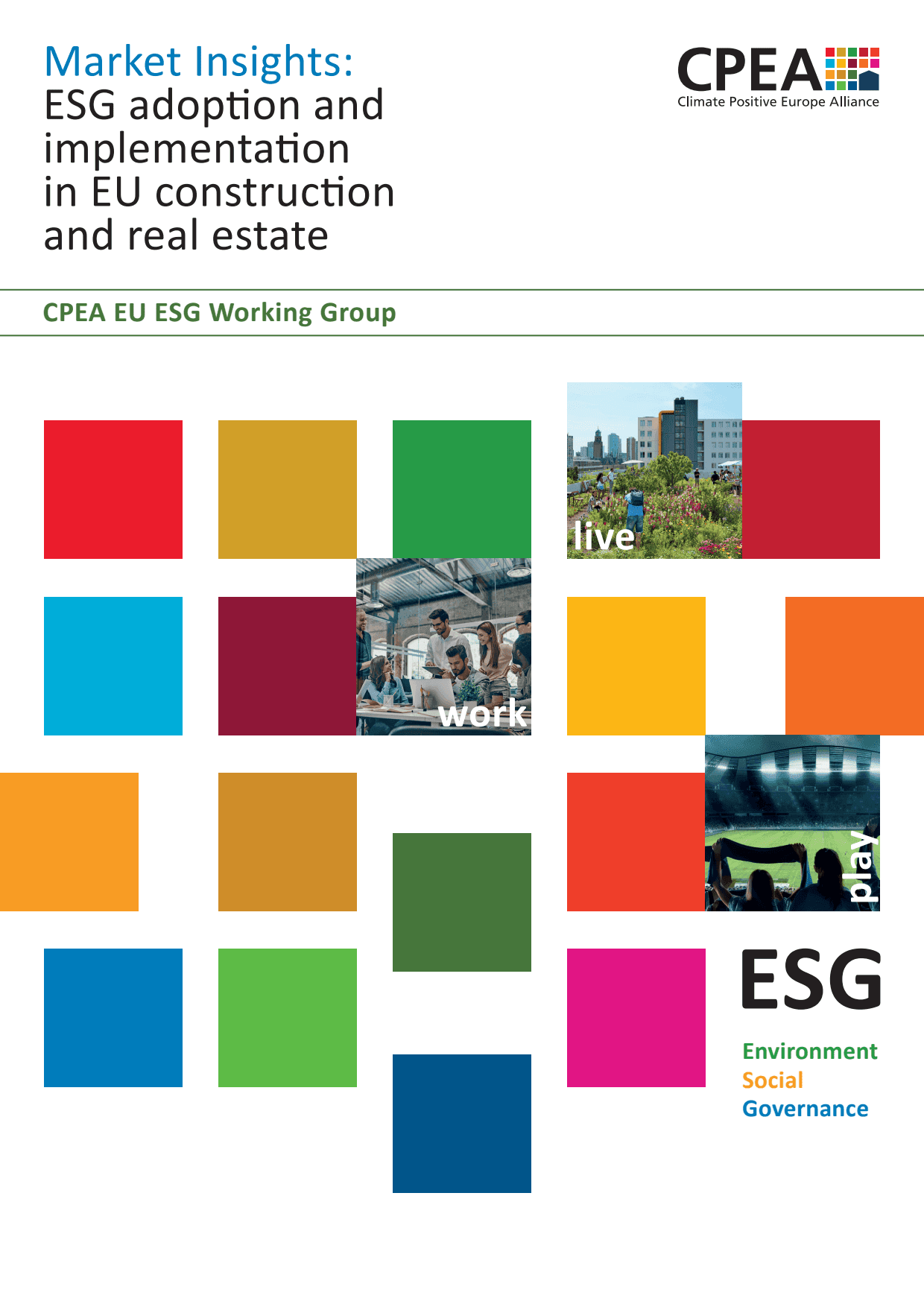AI-Generated Summary
Learn moreContext and Publisher Overview
The report titled "Market Insights: ESG Adoption and Implementation in EU Construction and Real Estate" was published in 2023 by the Climate Positive Europe Alliance (CPEA). The CPEA is an organization that aims to promote sustainable development across Europe by fostering collaboration among various stakeholders, including over 40 organizations from sectors such as finance, real estate development, asset management, and civil society across ten European countries. The lead author, Ursula Hartenberger, serves as the Secretary General of CPEA.
Increasing Engagement with ESG
This report emerges in a context of heightened focus on Environmental, Social, and Governance (ESG) issues within the construction and real estate sectors in Europe. In response to this growing engagement, the CPEA convened the ESG Working Group in May 2021 to enhance cross-border knowledge exchange and build capacity surrounding ESG matters specific to these sectors.
Objectives of the Report
The primary goal of the report is to provide an overview of the current state of ESG strategy development, implementation, and disclosure among European players in construction and real estate. It seeks to deepen the understanding of ESG's significance among market participants, provoke debate across different sectors, and situate ESG within the existing and upcoming EU legislation framework.
Key Findings
- ESG Drivers and Challenges: The report identifies several key drivers for the adoption of ESG principles, including regulatory requirements such as the EU Taxonomy and the Sustainable Finance Disclosure Regulation (SFDR), increasing investor demand, and the need for market competitiveness. Conversely, it also points out challenges like the lack of sector-specific ESG definitions, difficulties in data availability, and limitations in organizational capacity to implement ESG strategies effectively.
- Integrated Approach to ESG: A significant takeaway from the report is the advocacy for a multi-dimensional approach to ESG, which acknowledges the interdependencies between environmental, social, and governance factors. It underscores the necessity for holistic strategies that integrate these dimensions rather than isolating them.
- ESG Reporting and Disclosure: The report elaborates on various reporting frameworks utilized by organizations, highlighting both regulatory tools (like the EU Taxonomy) and non-regulatory frameworks (like GRESB and UN PRI). It stresses the critical importance of transparency and accountability in ESG reporting to mitigate the risk of "ESG washing."
- Practical Recommendations: To address the challenges associated with ESG implementation, the report provides practical recommendations, including the development of clear sectoral guidelines, enhancement of data management practices, promotion of cross-sector collaboration, and improvement of training programs.
- Case Studies: The report features several case studies, such as those from 011h Sustainable Construction in Spain and Patrizia AG in Germany. These examples illustrate how various organizations are operationalizing their ESG strategies.
Conclusion
Overall, the report highlights the increasing importance of ESG frameworks in shaping sustainable practices within the construction and real estate sectors across Europe. It calls for ongoing efforts from both policymakers and industry participants to address existing challenges and seize opportunities for sustainable development.
